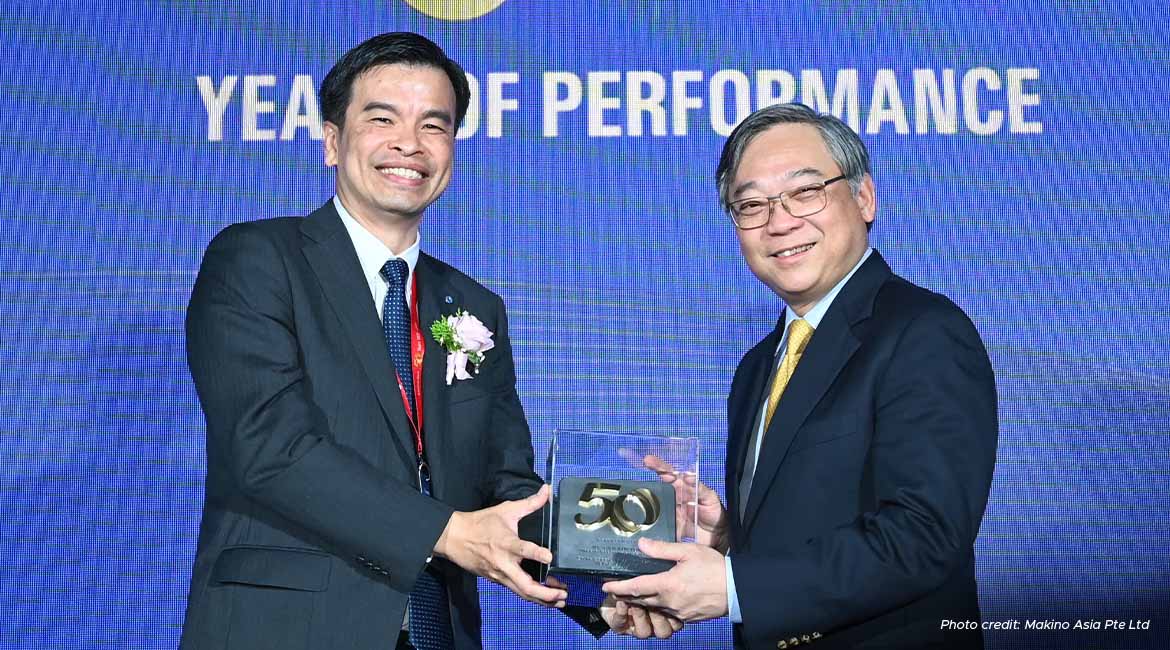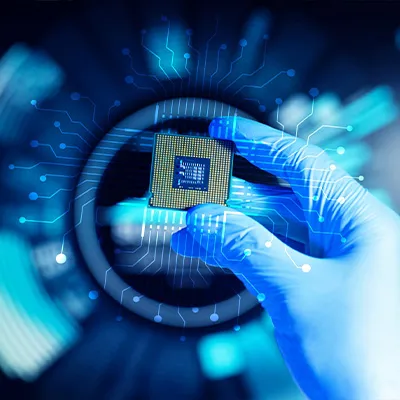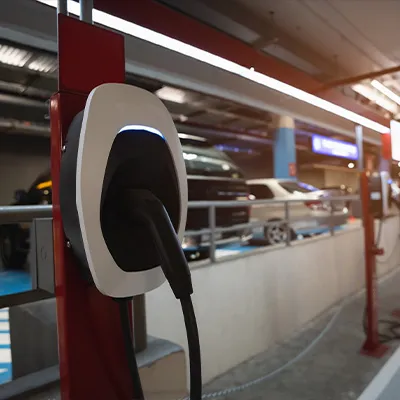“In the last 10 years alone, Makino Asia has invested more than S$320 million in capital investment locally,” he noted.
He highlighted the role of Singapore’s precision engineering industry as a “key pillar” of manufacturing, contributing over 10 per cent of value-added in the sector.
In the precision engineering Industry Transformation Map updated last year, the industry “will capitalise on new digital manufacturing technologies and platforms to deliver competitive products and services”, he added. This transition will create a wide range of jobs across research and development, design, materials and software engineering.
The Makino group’s Asia-Pacific business contributes more than 40 per cent of its consolidated revenues, with Singapore serving as its Asia-Pacific headquarters.
Wednesday’s celebrations took place at the company’s advanced machining factory in Jurong. Its facilities in Singapore also include the International Research and Development Centre, Makino Asia’s only such facility outside Japan. Machine tools for fast-evolving industries, including electric vehicles, are designed and developed there.
“We recognise the opportunities in the Asia-Pacific, and will continue to invest in our operations to cater to our global customer base,” Neo said in his opening speech.
Makino Asia employs 1,700 people across Singapore, China, India, Asean and Europe, with more than 500 based in Singapore. The company also has 13 technology centres across the Asia-Pacific region.
Lionel Lim, Singapore Economic Development Board Vice-President and Head of Technology Hardware and Equipment, said: “Makino’s significant presence here has enriched our manufacturing ecosystem, and supported the growth of other companies in the aerospace, medtech, semiconductor and automotive industries.”
He also commended the company’s focus on environmental sustainability. Makino Asia’s advanced machining factory here uses chilled water to regulate temperatures, reducing power consumption by 25 per cent. Solar panels provide a fifth of its electricity needs, reducing its overall carbon footprint.
“I am proud to say that even with a 50 per cent increase in capacity, our advanced machining factory in Singapore, has successfully maintained stable total energy consumption,” Neo said.
Singapore is Makino Asia’s first factory with solar panels, a feature to be replicated in the company’s other factories, he added.
Separately, Makino Asia is exploring and investing in additive manufacturing – also known as 3D printing – to complement conventional machine tools. The company hopes to partner with European companies, as additive manufacturing is “the most advanced” there, Neo told BT.
Gan noted that Makino Asia’s recently-launched metal-based additive manufacturing solution will “support the strategic needs of other manufacturing industries” in Singapore and the region, reaffirming “Makino Asia’s leadership position in the field”.
Source: The Business Times © SPH Media Limited. Permission required for reproduction.






